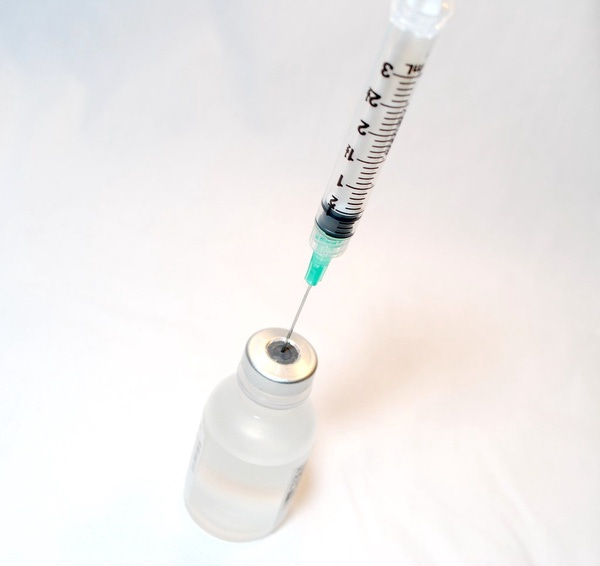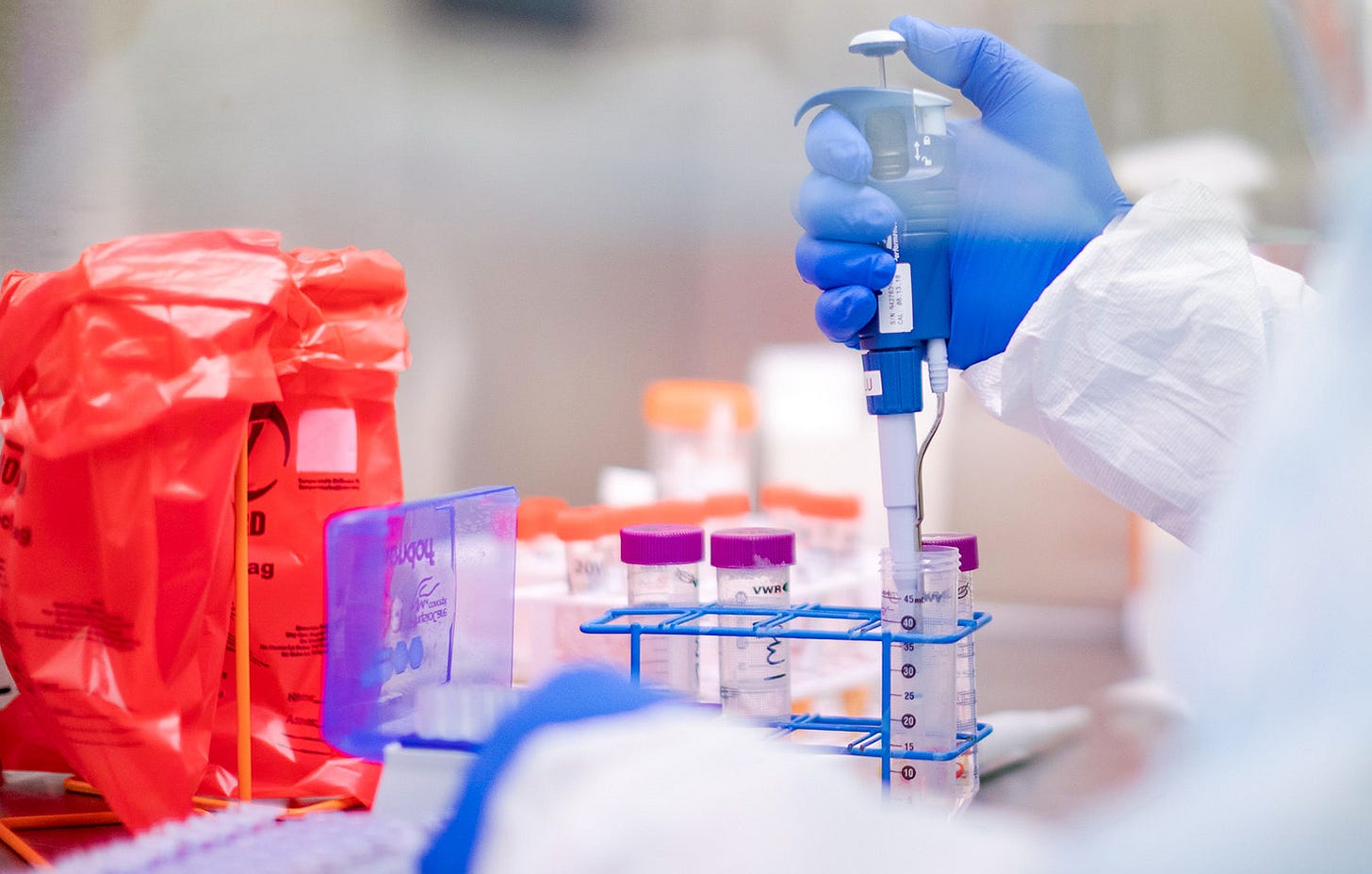Cyreena Boston Ashby: What racial injustice means for vaccination efforts in Oregon
May 2021 bring an increased belief in science, unity against racial injustice, and restoration for us all.
Cyreena is a Partner at Hilltop Public Solutions and has worked on Oregon’s pressing issues of economic development, health care, housing, and racial equity.

Well, there you have it!
Back in October, I wrote in great anticipation of the COVID-19 vaccine which, as of Monday, has now arrived here in Oregon. Though the status of the vaccine has changed, my concerns about the public’s perception of vaccines remain.
Two years ago, a regional measles outbreak led the Oregon State Legislature to consider House Bill 3063. This legislation would have significantly improved our ability to control the spread of preventable disease. Yet, the effort failed due to public vitriol over vaccines in general. Fearing that the same challenge would re-present itself regarding the anticipated COVID-19 vaccine, I asked: what will Oregonians do to lead the fight against preventable disease by protecting those most vulnerable? I was unsure if we would embrace a COVID-19 vaccine at all.
My question generally went unanswered.
Perhaps then it seemed too soon to begin the public discourse on a COVID-19 vaccine. One reason may have been that despite frequent updates from the FDA and pharmaceutical companies like Pfizer, the general public was pessimistic that an actual vaccine would come about in the near futre. The public wasn’t wrong to have their doubts.
The fact that, in under a year, it appears as though multiple safe and effective COVID-19 vaccines have been developed is a testament to the power and possibility of American medical innovation; of course, that innovation was only possible because of government support for dedicated health care workers and the biopharmaceutical industry. Now, relief and hope are here via the Pfizer vaccine as well as the other vaccines that may soon receive FDA approval.
My question, though, still needs to be answered.
We must now, as community members at every level, ensure that we avail ourselves of the relief afforded by the vaccine. The vaccine will only be effective if Americans take it. However, there exists a deficiency of trust in the vaccine amongst many communities.
The Kaiser Family Foundation (KFF) has been polling American’s attitudes and receptivity to a COVID-19 vaccine since September. One recent survey indicated an increase in the share of the public saying they would definitely or probably get a vaccine for COVID-19 if it was determined to be safe by scientists and available for free to everyone who wanted it. The increase was a jump from 63% three months ago to 71% most recently. With a tangible vaccine now available—arriving in Oregon this week—and a surge in COVID-19 cases, there are plenty of reasons for increased public receptiveness and confidence.
But one noteworthy exception is that depending on your racial background, you may be in the category of vaccine hesitant persons.
According the same survey, among Black Americans, there are fears about whether the needs of people of color are being factored into the vaccine development process. About half (48%) of Black adults say they are not confident that the development of a COVID-19 vaccine is taking the needs of Black people into account, and over a third (36%) of Hispanic adults say the same about the needs of Hispanic people.
This is interesting because COVID-19 statistics, even in Oregon, have made it clear that Black and Hispanic persons have tallied the highest rates of COVID-19 deaths, which is a trend that has unfortunately increased since this Fall. Today, it is still true that if you are Black and/or Hispanic you are twice as likely to die from COVID-19.
It seems that those who have suffered the most from COVID-19 are also those who have the greatest concerns with taking a vaccine against the disease.
Why is that?
It is because Black, Indigenous, and people of color (BIPOC) come from a history and current practice of being intentionally mistreated and marginalized by the American medical system.
Consider historical events such as the “Tuskegee Study of Untreated Syphilis in the Negro Male” to understand the concerns of the BIPOC community. The Study is a known, yet still not widespread example of deliberate mistreatment of people due to their race by white doctors.
There are, sadly, many more examples. Henrietta Lacks was a Black woman whose cells were taken by a white doctor without her knowledge in 1951. Those cells became one of the most important tools in medicine, vital for developing the polio vaccine, cloning, gene mapping, in vitro fertilization, and more.
In Oregon, the story of Gertrude “Trudy” Rice, who was one of Oregon’s first African American registered nurses, covers the racism she confronted as a medical worker in Oregon, and her experiences treating patients.
These examples add up to a painful reality: not only are people of color likely to receive mistreatment, but they are also more likely to not be able to access care in the first place. People from racial and ethnic minority groups are more likely to be uninsured than non-Hispanic whites. Even with access to the Oregon Health Plan through various Coordinator Care Organizations, health care and medical care access is limited for BIPOC Oregonians by many other factors, such as a lack of transportation, and an inability to take time off from work, find childcare, and overcome communication and English translation barriers. There are also cultural differences between patients and providers that spur discrimination in healthcare. BIPOC Oregonians hesitate to seek care because they distrust the government and healthcare systems responsible for inequities in treatment.
This understandable hesitation harms individuals as well as public health in general. Currently, a look at the incidences of every chronic and preventable disease in Oregon reveals that BIPOC Oregonians are the most at risk of falling ill.
BIPOC Americans and Oregonians have come by their COVID-19 vaccine leeriness honestly.
It’s still not too late to heed my early warning that the COVID-19 vaccine discourse would be rooted in health equity. Here’s a sample of solutions for how to mitigate BIPOC vaccine hesitancy in Oregon:
Have Oregon’s medical and public health systems develop and implement a rigorous public education campaign led by the correct surrogates entrusted within Oregon’s BIPOC communities. Oregon’s traditional and community health workforce should be among the first to receive funding and training to educate BIPOC Oregonians in all 36 Oregon counties on the COVID-19 vaccine.
Paid advertising and language translation are minimal messaging tactics for proper public engagement that must be applied.
Any COVID-19 vaccine fears and concerns should not be met with knee jerk reactions to hesitancy, as this will only result in large swath declinations of the vaccine, further weakening Oregon’s ability to recover from the pandemic.
Over the next several months, I look forward to sharing the perspectives of a few Oregonians most effected by COVID-19 as the vaccine becomes more readily available. In doing so, my intent is to enrichen the public discourse on both the fears and great hopes of COVID-19 prevention, and what a vaccine means for those most affected by it.
Until then, I wish all in our great state a safer and healthier end to 2020. I thank our front-line workers, medical personnel, and educators for their service to us all over the last several, challenging months. May 2021 bring an increased belief in science, unity against racial injustice, and restoration for us all.
****************************************
Touch base with Cyreena:
@CyreenaBA
Keep the conversation going:
Facebook (facebook.com/oregonway), Twitter (@the_oregon_way)
Check out our podcast:
#93





